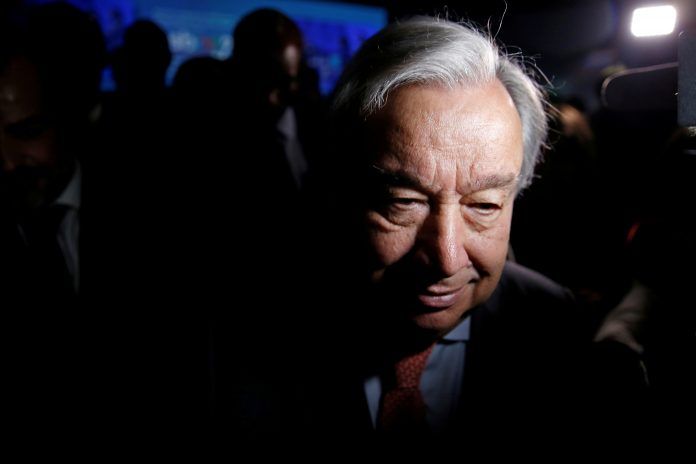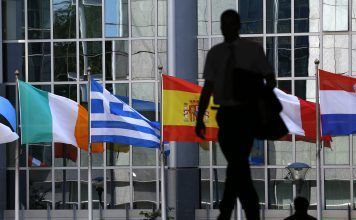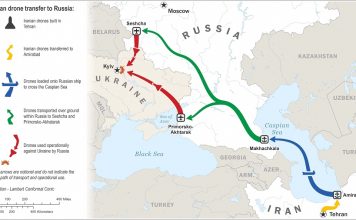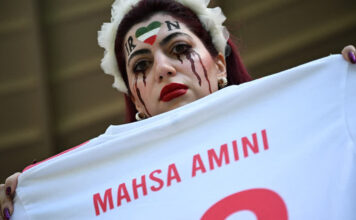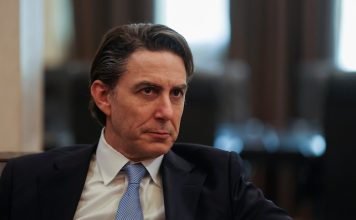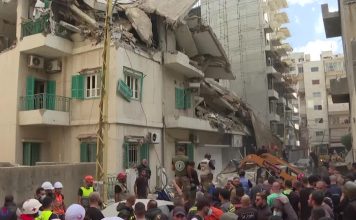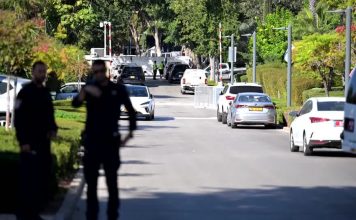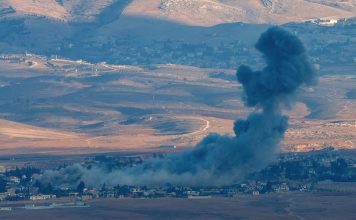By Michelle Nichols
UNITED NATIONS, Dec 6 (Reuters) – United Nations Secretary-General Antonio Guterres made a rare move on Wednesday to formally warn the Security Council of a global threat from the Gaza war as Arab states seek to use this alert to push the council to call for a ceasefire within days.
The United Arab Emirates gave the council a brief draft resolution, seen by Reuters, that would act on the letter from Guterres by demanding an “immediate humanitarian ceasefire” in the conflict between Israel and Palestinian militants Hamas.
Diplomats said the UAE aims to put the text to a vote on Friday when the council is due to be briefed by Guterres on Gaza. To be adopted, a resolution needs at least nine votes in favor and no vetoes by the five permanent members – the United States, Russia, China, France or Britain.
Deputy U.S. Ambassador to the United Nations, Robert Wood, said the United States does not support any further action by the Security Council at this time.
“However, we remain focused on the difficult and sensitive diplomacy geared to getting more hostages released, more aid flowing into Gaza, and better protection of civilians,” Wood told Reuters.
The United States and ally Israel oppose a ceasefire because they believe it would only benefit Hamas. Washington instead supports pauses to protect civilians and allow for the release of hostages taken by Hamas in a deadly Oct. 7 attack on Israel.
“The UAE draft resolution has the support of the Arab and OIC (Organisation of Islamic Cooperation) group. This is a moral and humanitarian imperative and we urge all countries to support the call of the Secretary-General,” the UAE mission to the U.N. posted on X, formerly known as Twitter.
Palestinian U.N. envoy Riyad Mansour said Arab ministers would discuss the draft Security Council resolution with U.S. officials during a visit to Washington this week.
“On top of the agenda is this war has to stop,” he told reporters as Arab U.N. ambassadors stood with him. “A ceasefire has to take place and it has to take place immediately.”
Israel’s Most Wanted: The Three Hamas Leaders in Gaza It Aims to Kill
‘NEW MORAL LOW’
The United States abstained last month to allow the Security Council to adopt a resolution calling for pauses in fighting. A seven-day pause – that saw Hamas release some hostages and an increase in humanitarian aid to Gaza – expired on Dec. 1.
Guterres told the council in his letter that the war “may aggravate existing threats to international peace and security.”
He invoked Article 99 of the founding U.N. Charter that allows him to “bring to the attention of the Security Council any matter which in his opinion may threaten the maintenance of international peace and security.”
The article has not been used for decades, U.N. spokesperson Stephane Dujarric said.
“We are facing a severe risk of collapse of the humanitarian system,” Guterres wrote. The implications for Palestinians could be irreversible and for regional security, he said, again calling for a humanitarian ceasefire to be declared.
Israel’s U.N. Ambassador Gilad Erdan accused Guterres of reaching a “new moral low” by sending the letter to the Security Council, adding: “The Secretary-General’s call for a ceasefire is actually a call to keep Hamas’ reign of terror in Gaza.”
U.S. State Department spokesperson Matthew Miller said the conflict presented threats to regional and global security.
“We made quite clear that one of the things that we are trying to do is prevent this conflict from spreading,” he told reporters.
Israel says 1,200 people were killed and 240 people taken hostage during the Oct. 7 attack by Hamas. Israel has focused its retaliation against Hamas in Gaza, bombarding it from the air, imposing a siege and launching a ground assault.
Gaza’s Health Ministry says that so far 16,015 people have been killed in the enclave of 2.3 million.
Guterres told the Security Council in his letter that there was no effective protection of civilians and that “nowhere is safe in Gaza.”
Regime in Tehran Is Involved in Israel-Hamas War, Says IDF Spokesperson Conricus
(Reporting by Michelle Nichols and Katharine Jackson; Additional reporting by Humeyra Pamuk in Washington; Editing by Grant McCool and Miral Fahmy)

